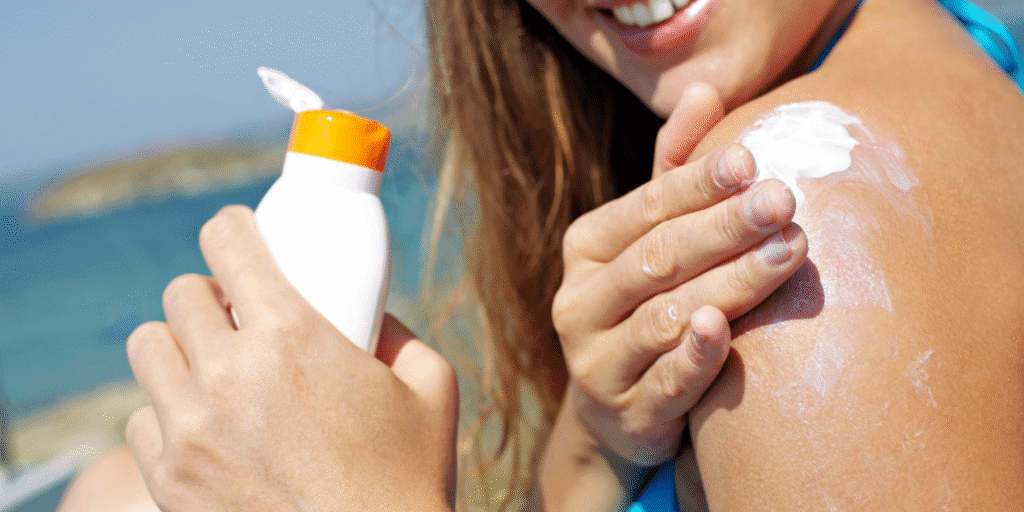Let’s be real—life becomes hectic, and skin care has a tendency to fall by the wayside. When social media influencers are discussing 10-step skincare regimens, you can feel overwhelmed or demotivated. So, we cut through the noise and asked the real experts: five board-certified dermatologists. We asked them one straightforward question—what is the absolute most important thing you do for your skin each day? Amidst the numerous opinions floating around, their responses all fell into one definitive priority.
Always Use Sunscreen

Consistently using sunscreen every day is the one routine that should never be omitted, according to all the dermatologists interviewed. Dr. Sara Perkins, assistant professor of dermatology at the Yale School of Medicine, points out that this easy action provides the strongest protection against premature aging and the formation of skin cancer. Ultraviolet radiation, in even minute amounts, adds to fine lines, wrinkles, spots, and serious diseases such as melanoma and basal cell carcinoma. Sunny, cloudy, warm, or cool, your skin is subjected to UV rays almost daily—even through the window or on brief outdoor errands. Most individuals believe that sunscreen is only required when engaging in activities for hours at the beach or on a hike, but random exposure to the sun breaks down over time.
Case Western Reserve University assistant professor Dr. Rosanne Paul describes how individuals also apply too little sunscreen. On your face alone, the proper amount is typically two to three fingertip-lengths of product. And if you’re outdoors in a bathing suit, about a shot glass full is required to cover your entire body properly. It’s not just about slathering on any product either. Experts recommend choosing a broad-spectrum sunscreen with at least SPF 30 and reapplying it every two hours when exposed to the sun.
There are two primary types of sunscreen: mineral and chemical. Mineral sunscreens, made with ingredients such as zinc oxide and titanium dioxide, physically block UV radiation and are best suited for sensitive skin types, such as rosacea or eczema. Chemical sunscreens, which absorb UV radiation by virtue of active ingredients avobenzone or oxybenzone, are also effective but irritate some and have been found to harm coral reefs. Whichever your choice, the key is the same—daily sun protection is not an option for good skin.
Apply a Retinoid or Retinol

While sunscreen was at the top of the list, the dermatologists also had some more habits that play a big role in long-term skin health. Foremost among them is applying a retinoid or retinol. These vitamin A-derived compounds have been well studied and were shown to induce skin cell turnover, decrease pigmentation, enhance clogged pores, and stimulate the production of collagen. This makes them a great choice for the treatment of early aging and acne. Dr. Perkins emphasizes that their effectiveness is well-documented through decades of clinical evidence.
Topical retinoids, such as tretinoin, are prescribed and take the form of an active compound that acts rapidly. Over-the-counter retinol, however, needs to be converted by the skin to become effective and is also less harsh. Dr. Alexis Young of Hackensack University Medical Center recommends that individuals start using retinoids in their early 30s or late 20s. For sensitive skin, it is best to start with a low-strength retinol a few times a week. Most importantly, retinoids increase the sensitivity of skin to light, so always using them must be accompanied by careful sun protection.
Include a Topical Antioxidant in Your Regimen

Another strong recommendation for inclusion in a daily regimen is a topical antioxidant. Dr. Paul believes in using antioxidants like vitamin C to reverse the damage done by free radicals, those unstable molecules created by UV exposure and environmental stress. These free radicals can damage skin cells, break down collagen, and speed up the aging process. A quality vitamin C serum will brighten the skin, reduce dark spots, and shield the skin from oxidative damage. High-end products may rule the market, but Paul assures consumers that good vitamin C products do not have to break the bank in order to be effective. But she does recommend keeping a product on the face at least for two to three months before seeing visible results.
Focus on Lifestyle: Drink Up, Sleep Right, and Feed Your Skin

Apart from topical applications, lifestyle also comes into play in having healthy skin. Dr. Deeptej Singh, assistant professor of dermatology at the University of New Mexico and founder of Sandia Dermatology, points out how strongly gut health influences skin looks. A diet of whole plant foods—vegetables, fruits, legumes, nuts, and whole grains—nourishes not just the digestive tract but also calms inflammation and enhances the skin’s resistance. Hydration plays an equally vital role. Water, tea, and even coffee, in moderation, moisturize the skin and have natural antioxidants. Singh points out that while caffeine is usually suspect, it can be good for the skin and is even found in many cosmetics.
Sleep, also, is a neglected cornerstone of skincare. Singh emphasizes that getting enough sleep gives the body time to repair and detoxify, processes critical to clear, healthy skin. Relying on caffeine to make up for insufficient sleep, he cautions, can have the opposite effect—throwing the skin out of balance and leading to dullness or breakouts. Drinking alcohol is another behavior that needs to be curbed. Fermented beverages overburden the detoxifying systems of the body, and this can result in inflammation that tends to express on the skin.
Think About Red-Light Therapy for Extra Help

Finally, Singh refers to the popularity of red-light therapy masks. These emit red and near-infrared light that helps stimulate cellular energy production in the skin. Red-light therapy purportedly increases collagen production and enhances elasticity, making it an attractive choice for those who want to minimize fine lines and achieve a youthful sheen. Though not inexpensive—usually in the hundreds of dollars—their early research and lengthy history in dermatology derive from light therapy.
If you’re looking to streamline your skincare routine without compromising effectiveness, start with sunscreen. It’s the single most impactful daily habit for protecting and preserving your skin. From there, adding a retinoid, incorporating antioxidants like vitamin C, maintaining a healthy lifestyle, and optionally exploring red-light therapy can round out a powerful, results-driven skincare regimen. It doesn’t have to be complicated—just consistent.
Also Read : 12 Essential Skincare Tips for Frequent Travelers



